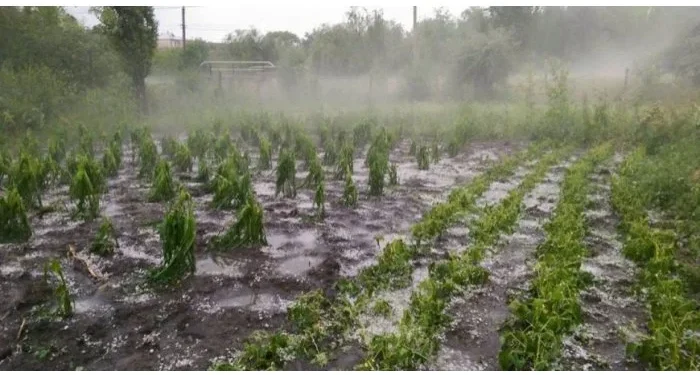Entrepreneurs and investors exploring opportunities in the agricultural sector should note the recent severe weather events in Moldova, which have significantly impacted the country’s agricultural landscape. Between May 30 and June 3, 2024, heavy rains and hailstorms inflicted damage on various agricultural crops across several regions in Moldova, as reported by EastFruit.
In late May 2024, Moldovan farmers were already grappling with a critical situation due to a lack of rainfall. However, the onset of heavy rains and hail at the beginning of June shifted their concerns to calculating losses from the adverse weather conditions. According to the General Inspectorate for Emergency Situations (GIES), several areas in the north, south, and center of the country have reported significant damage to crops.
In the village of Bârlădeni in the Ocnița district, approximately 8 hectares of apple orchards were destroyed by the torrential rains. Similar damage was reported in the village of Răzeni in the Ialoveni district, where about 12 hectares of corn and 30 hectares of sunflower were affected. Furthermore, the village of Săiți in the Căușeni district saw the destruction of 40 hectares of orchards due to the harsh weather.
Read also: Irrigation Systems and Drought-Resistant Crops: How Moldova’s Agro-Sector Can Adapt to Climate Change
The GIES also reported substantial damage in the southern part of the country, specifically in the village of Etulia in the Autonomous Territorial Unit of Gagauzia. Here, hail decimated around 360 hectares of walnut orchards, 200 hectares of sunflower, and 200 hectares of barley.
In addition, the Basarabeasca district’s village of Başcalia experienced the destruction of approximately 750 meters of asphalt road and 70 square meters of greenhouse film. The heavy rains also damaged various agricultural crops, including 62 hectares of vineyards, 448 hectares of wheat, 111 hectares of corn, 179 hectares of barley, 7 hectares of peas, and 217 hectares of sunflower.
This sequence of events underscores the vulnerability of agriculture to climate-related risks and highlights the need for sustainable and resilient farming practices. Investors and entrepreneurs should consider the implementation of advanced agricultural technologies, irrigation systems, and the cultivation of drought-resistant crops to mitigate the impacts of such weather events in the future.










